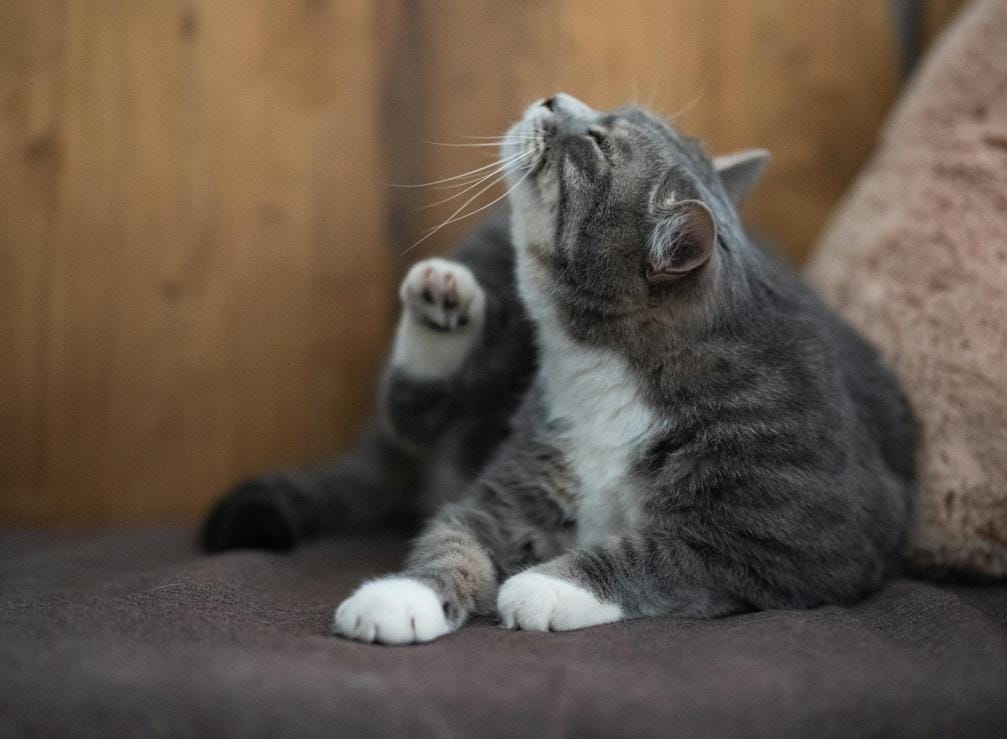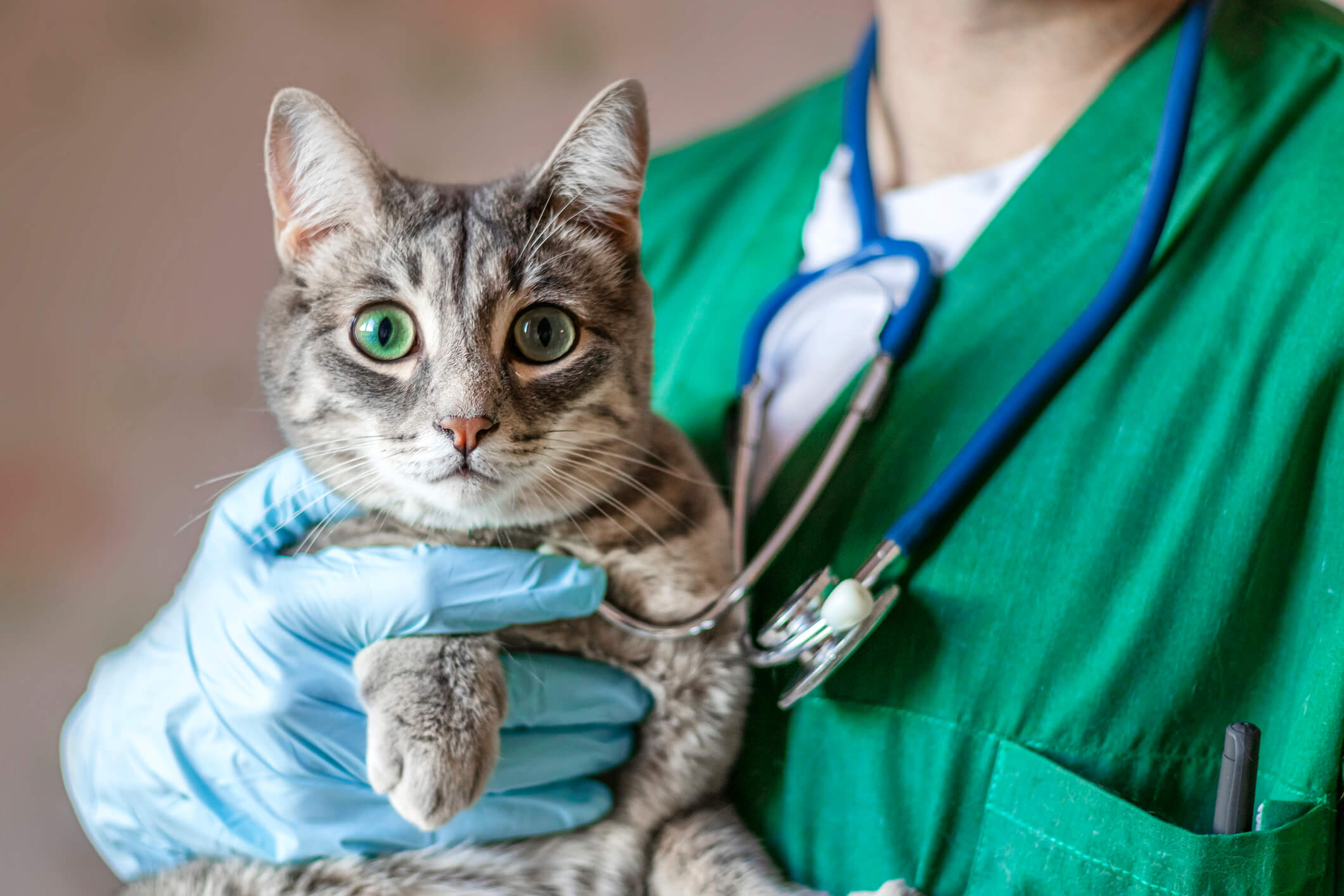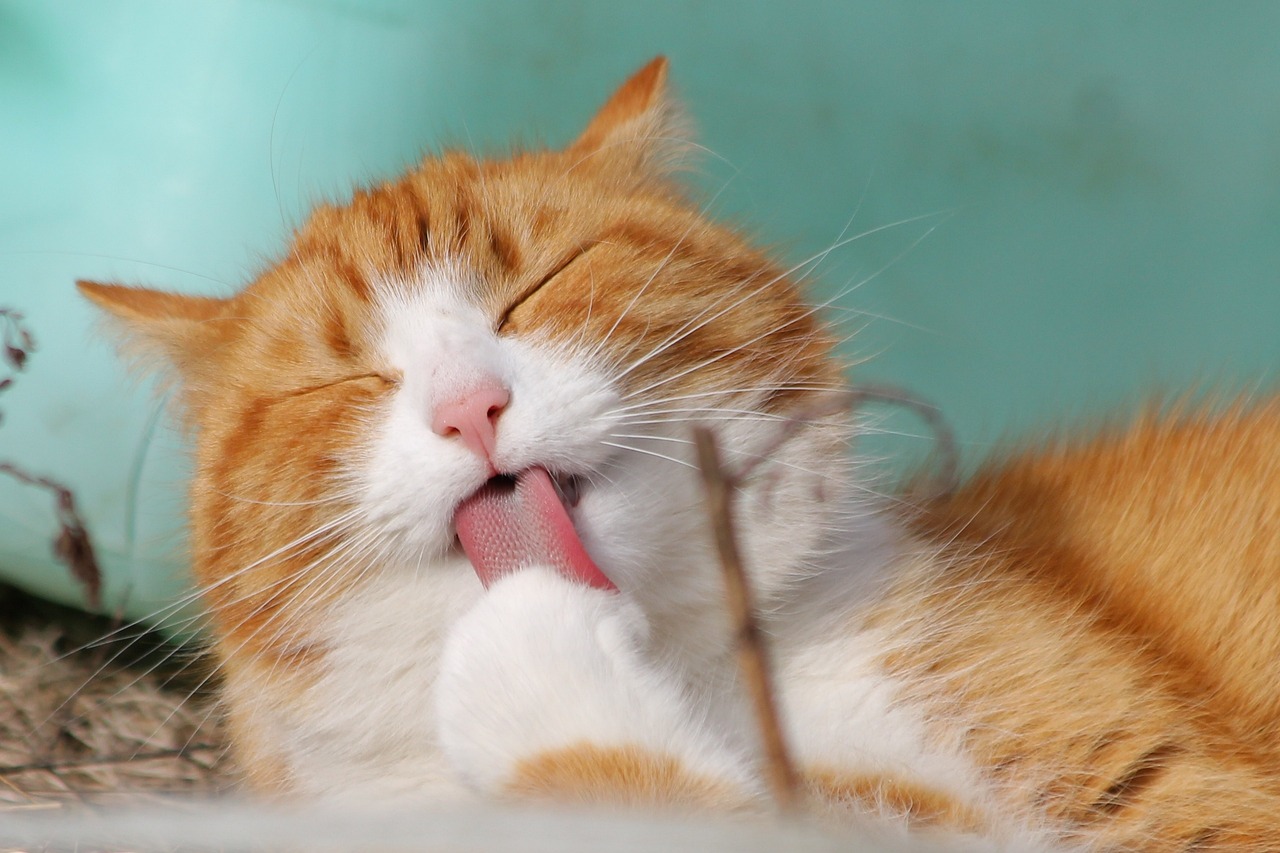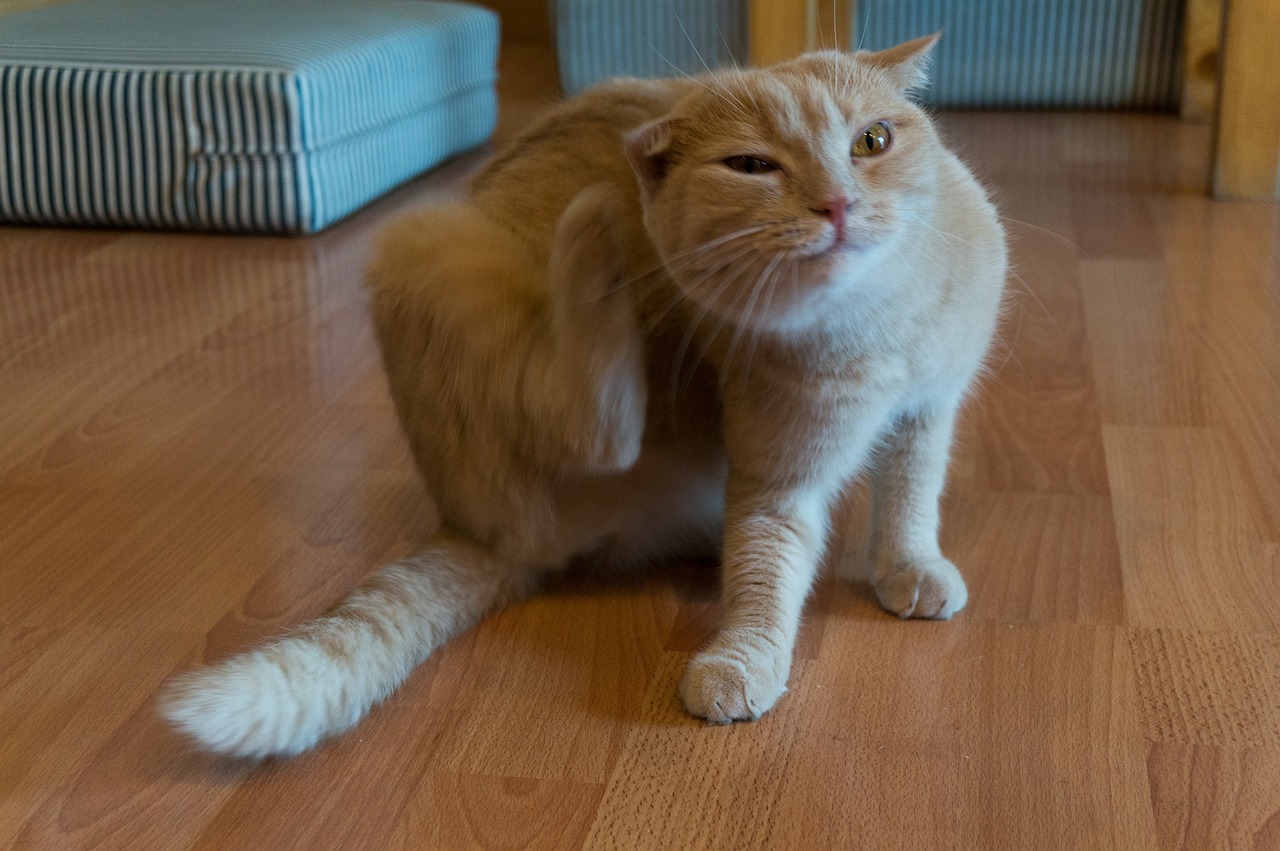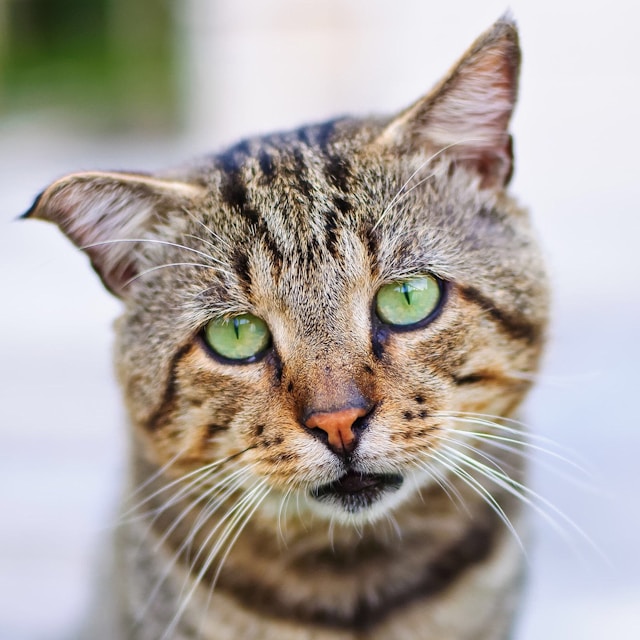Scottish Fold
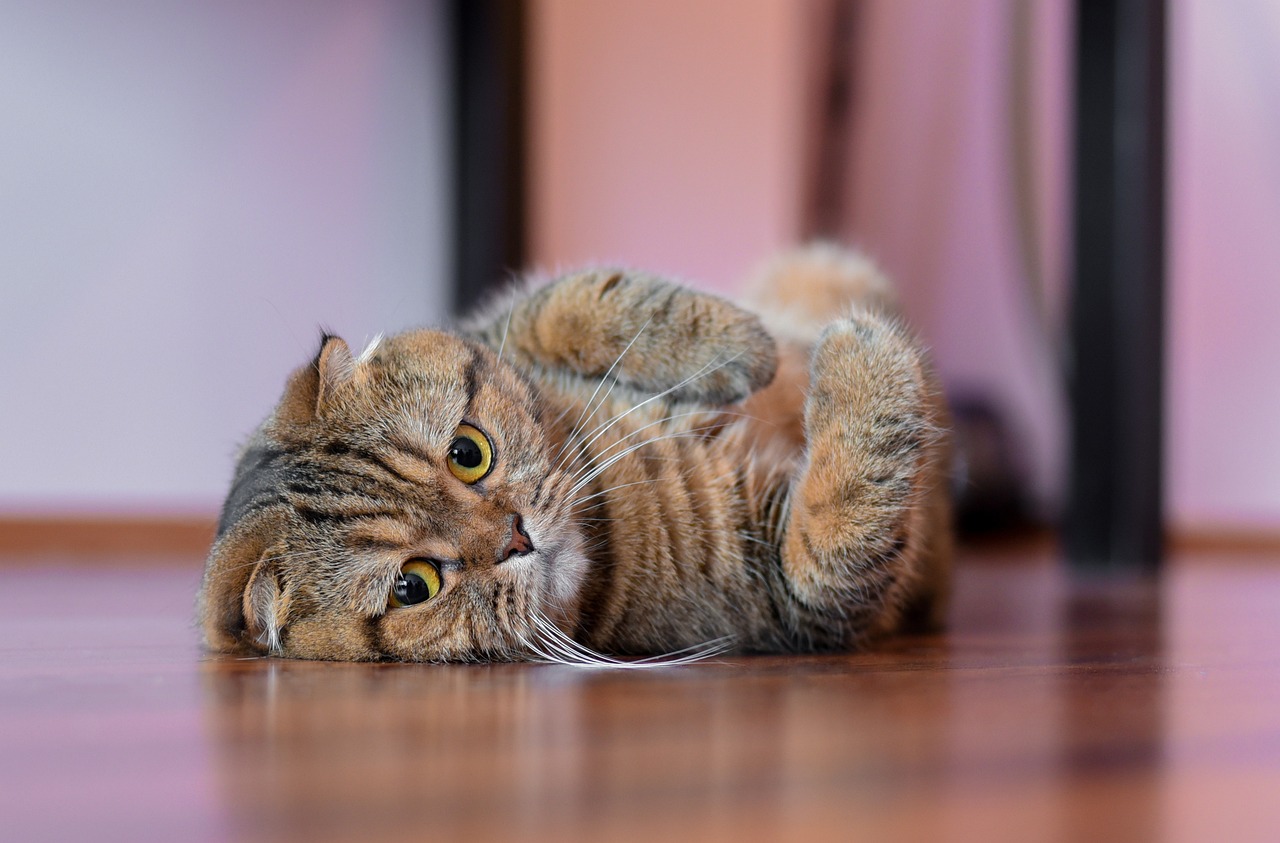
| Official Name | Scottish Fold (Highland Fold) |
| Common Name | Scottish Fold (Highland Fold) |
| Pet Height | 8 to 10 inches |
| Pet Weight | 6 to 13 pounds |
| Lifespan | 11 to 14 years |
| Good With | cats, children, dogs, families, seniors |
| Temperament | affectionate |
| Intelligence | high |
| Shedding Amount | normal |
| Playfulness | medium |
| Energy Level | calm |
| Vocal Level | when necessary |
| Coat Length | long, short |
| Colors | black/ebony, blue/gray, cream/beige/tan, fawn, lavender/silver, red/orange |
| Other Traits | easy to groom, easy to train, friendly toward humans, friendly toward other pets, friendly toward strangers, good lap cat, high potential for weight gain, tolerates being alone, tolerates being picked up |
These cats are relatively rare and are admired for their adorable looks and gentle personalities.
Scottish Folds are medium-sized cats, typically weighing between 6 and 12 pounds. They're easy to care for and love spending time with their families. Their intelligence shines through in their love for games and chasing toys around the house.
Marilyn Krieger, a Certified Cat Behavior Consultant based in San Francisco and author of Naughty No More: Change Unwanted Behaviors Through Positive Reinforcement, emphasizes the importance of thorough research when acquiring a cat like the Scottish Fold. She recommends purchasing from reputable breeders who are members of organizations like The International Cat Association (TICA) or the Cat Fanciers' Association (CFA).
While owning a unique breed like the Scottish Fold can be exciting, Krieger reminds cat owners to cherish their pets for their overall personalities, not just for their distinctive features like folded ears. "These cats aren't decorations," she says. "Like all breeds, they require the best care, enrichment, and daily attention."
Appearance
Imagine a cat with the charm of an owl—if you could combine the two, you'd get a Scottish Fold. These medium-sized, sturdy cats are known for their affectionate nature. They often shower love on everyone in the family, though they might choose one person as their special favorite.
Scottish Folds stand out with their round heads, short necks, and large, expressive eyes. Their most distinctive feature is their folded ears, which give them an adorable, owl-like appearance. Their fur is typically short and dense, though you can also find long-haired varieties. They come in a wide range of colors, including white, blue, cream, silver, black, cameo, and brown, with patterns like solid, tabby, tortoiseshell, bicolor, spotted, and shaded. Their eyes are just as striking, with shades of gold, green, or blue.
A Scottish Fold could be a perfect fit if you live in an apartment, as they stay relatively small. Males usually weigh around 12 pounds, while females range between 8 to 12 pounds. Despite their unique ears, they are a generally healthy breed and don't have an increased risk of ear infections or mites.
Grooming a Scottish Fold is easy—thanks to its short, dense coat. A weekly brushing is enough to keep their fur in excellent condition by removing loose hairs and dead skin cells.
Personality
Scottish Folds are beloved for their relaxed and loving nature. While they form strong bonds with their families, they aren't the type to demand constant attention the moment you walk in the door.
According to Dr. Alison Gerken, a resident in clinical behavioral medicine at Florida Veterinary Behavior Service, "Scottish Fold cats are generally sweet, calm, easygoing, intelligent, loyal, and adaptable. They enjoy human companionship but aren't overly demanding and tend to be quiet, with soft voices."
These cats are just as content lounging beside you on the couch as they are soaking up your affection. Known for their intelligence, Scottish Folds can even be trained to perform basic tricks—though, like all cats, they have their own way of doing things.
Scottish Folds are also very social with other pets and get along well with other cats or dogs if introduced properly. Despite their distinct forward-folded ears, they still use them to communicate their feelings. Dr. Gerken explains that their ears may move back when they're scared or frustrated and perk up when they're playing or when they hear the sound of their food being opened.
Living Needs
Scottish Fold cats are a perfect example of a low-maintenance pet. Their medium size and short hair make them adaptable to almost any living space, whether a small apartment or a large house. These easygoing cats can fit right in with your lifestyle without requiring too much extra effort.
However, before bringing home a Scottish Fold—or any cat—there are a few essentials you'll need to consider. As with all cats, they need mental and environmental enrichment to stay happy and healthy. This includes providing scratching posts, both vertical and horizontal spaces like perches and hideaways, a variety of toys (which should be rotated weekly to keep things interesting), and regular social interaction and playtime with the family.
While Scottish Folds enjoy mental stimulation, they aren't particularly active cats. You won't have to worry about them climbing your curtains or jumping all over your furniture. They're great family pets, content whether they're with a single owner or a household full of children. Just be sure to teach kids how to interact gently and respectfully with their feline companions.
Care
Scottish Fold cats are relatively low-maintenance when it comes to grooming. Although they do shed, their thick coats only need a weekly combing to stay healthy and shiny. The long-haired variety of Scottish Folds requires a bit more attention, with brushing needed more frequently to prevent tangles and matting.
As with any cat, it's important to ensure your Scottish Fold is properly litter trained and that her litter box is kept clean. Regular nail trimming is necessary, and it's a good idea to take care of her teeth as well. While their unique folded ears should be checked regularly for earwax and signs of infection, this breed isn't more prone to ear issues than cats with straight ears.
Health
The Scottish Fold's distinctive folded ears are due to a genetic trait that typically causes the ears to start folding forward when the kitten is between 21 and 28 days old. This trait results from a cartilage defect; not all kittens in a litter may have folded ears.
However, this charming feature has a downside. According to Gerken, the same genetic defect that affects the ear cartilage also impacts the cartilage in the bones, leading to a condition known as osteochondrodysplasia. This can cause various degrees of joint degeneration and chronic pain in Scottish Folds.
Pet owners should look for signs of arthritis in their Scottish Fold, such as changes in walking, unusual posture, misshapen limbs, or shifts in activity levels.
Despite their sweet and somewhat less active appearance, Scottish Folds need plenty of attention and stimulation. They enjoy engaging with new toys and activities, so don't expect them to just sit quietly in the corner.
Training
Gerken explains that these cats, being quite smart, often love interactive toys like ones that fly or flutter. They might also enjoy food puzzles. Additionally, they're curious explorers, so hiding treats around the house for them to discover can be a fun and stimulating activity.
History
These gentle and easygoing cats all trace back to a single kitten named Susie, who was found on a Scottish farm in the early 1960s. Susie, a barn cat from the McRae farm, had a unique genetic mutation that gave her folded ears. This unusual feature quickly grabbed the attention of cat breeders. They began crossing Susie and her kittens with American and British shorthair cats, setting the stage for a new breed.
In 1963, British shorthair breeders Mary and William Ross fell for Susie's charm and received one of her kittens with folded ears, named Snooks. Snooks was paired with a red tabby male; together, they had one male kitten. This kitten was later bred with another British shorthair, leading to a litter of five kittens and firmly establishing Susie's legacy.
Fun Facts
One of the most well-known Scottish Fold cats is Maru, a male from Japan whose videos have racked up millions of views on YouTube. The Los Angeles Times even dubbed him the most famous cat in the world.
Scottish Folds have some pretty famous fans, too. Ed Sheeran, Taylor Swift, and Kirsten Dunst have all shared videos and photos of their Scottish Fold pets.
These cats have some quirky habits: they love to sleep on their backs and often sit in a position known as the Buddha Position, where they stretch out their legs and place their front paws on their bellies.
Get insurance plans with wide-ranging coverage options








